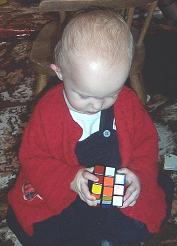Gratuitous Running Advice, part 3: Get some good shoes
You don't spend a great deal of money on running gear. Well, you can if you want to; there's all sorts of GPS tracking, heart-rate-monitoring and audio equipment you can load yourself up with if you want to. But all you really need is some comfortable clothing that isn't going to expose you to public ridicule, and some running shoes. And since running is such an inexpensive sport, compared to, say, skiing or skydiving, it's worth spending a bit of money on the shoes.
For the beginning runner, the prospect of buying some running shoes can be a bit intimidating. Here you are, currently capable of running perhaps a hundred metres in one go, and suddenly you've got to worry about baffling concepts like overpronation. It can be tempting simply to go to the first shop you find and select the first reasonably-priced pair of shoes that seem to fit. Resist this temptation. The quality of your running shoes can make a big difference to how comfortable you are, and how likely you are to get injured.
If possible, go to a specialist running shoe shop, rather than a general sports or shoe shop - a specialist shop will usually have knowledgeable staff who are interested in running. If you can get a recommendation from someone, great. Ideally, pick a time when the shop isn't too busy, and make sure you let them know that you're a new runner.
Also, be prepared to spend. Running shoes can seem expensive - mine were £85 (around US$150) - and they need replacing every 400 to 500 miles or so, but that's still a lot of running for your money, and it works out at a pretty small amount per mile. By the time you replace your first pair, you won't be a beginning runner any more.
For the beginning runner, the prospect of buying some running shoes can be a bit intimidating. Here you are, currently capable of running perhaps a hundred metres in one go, and suddenly you've got to worry about baffling concepts like overpronation. It can be tempting simply to go to the first shop you find and select the first reasonably-priced pair of shoes that seem to fit. Resist this temptation. The quality of your running shoes can make a big difference to how comfortable you are, and how likely you are to get injured.
If possible, go to a specialist running shoe shop, rather than a general sports or shoe shop - a specialist shop will usually have knowledgeable staff who are interested in running. If you can get a recommendation from someone, great. Ideally, pick a time when the shop isn't too busy, and make sure you let them know that you're a new runner.
Also, be prepared to spend. Running shoes can seem expensive - mine were £85 (around US$150) - and they need replacing every 400 to 500 miles or so, but that's still a lot of running for your money, and it works out at a pretty small amount per mile. By the time you replace your first pair, you won't be a beginning runner any more.


2 Comments:
Good advice indeed.
Eventually you will be able to sense when shoes are "going", but initially you may not be able to tell as the cushioning slowly goes down.
Best to track the mileage, or number of runs if you are a beginner, then pick a number like 400 miles as a replacement point. +100 if youare light and you run on trail. -100 if you are a big pavement-pounder. The shoes may look OK ? the outsole will be intact ? but they will have lost their ability to shock-absorb.
The new shoes will seem like springs!
Eventually you won't need the stats.
Ask a running coach or someone from a running club where and from whom at their store of choice they prefer to buy shoes. The person fitting you should have you do some walking or even running around the store the parking lot, or a treadmill to see how your gait works in different brands.
If you have a pair of running shoes that you've already been using to start, bring them in. The wear on them in relation to any complaints of aches you might have can really help the expert help you.
Your "perfect" brand of shoe might change from time to time, as your form and pace change due to training, or if you specialize in trail running or certain distances.
Keep going back to the same expert, once you've found one you trust. Often loyalty is rewarded with tips on which shoes in the "on-sale" stack (usually just last year's models) might suit you.
Post a Comment
<< Home